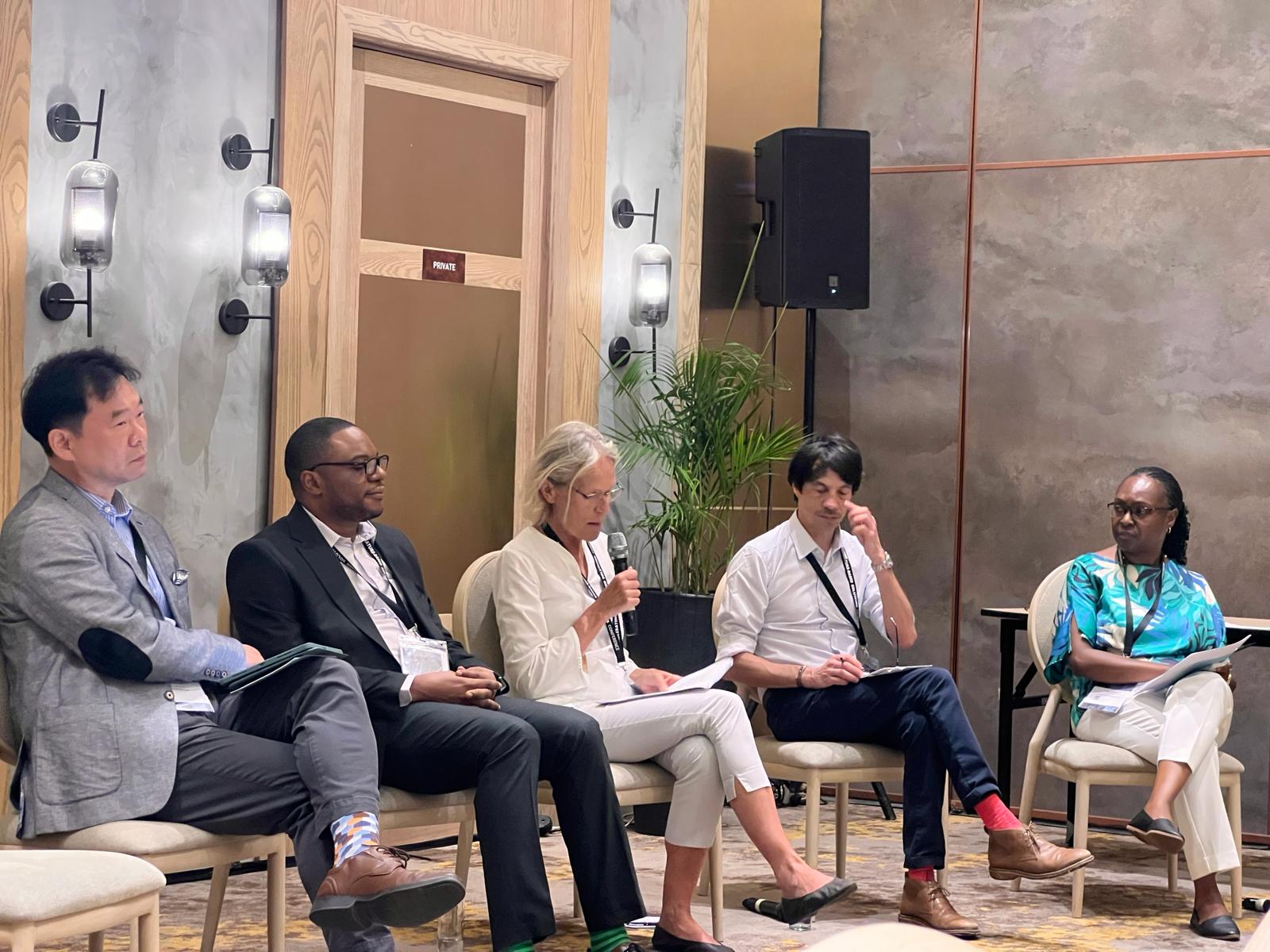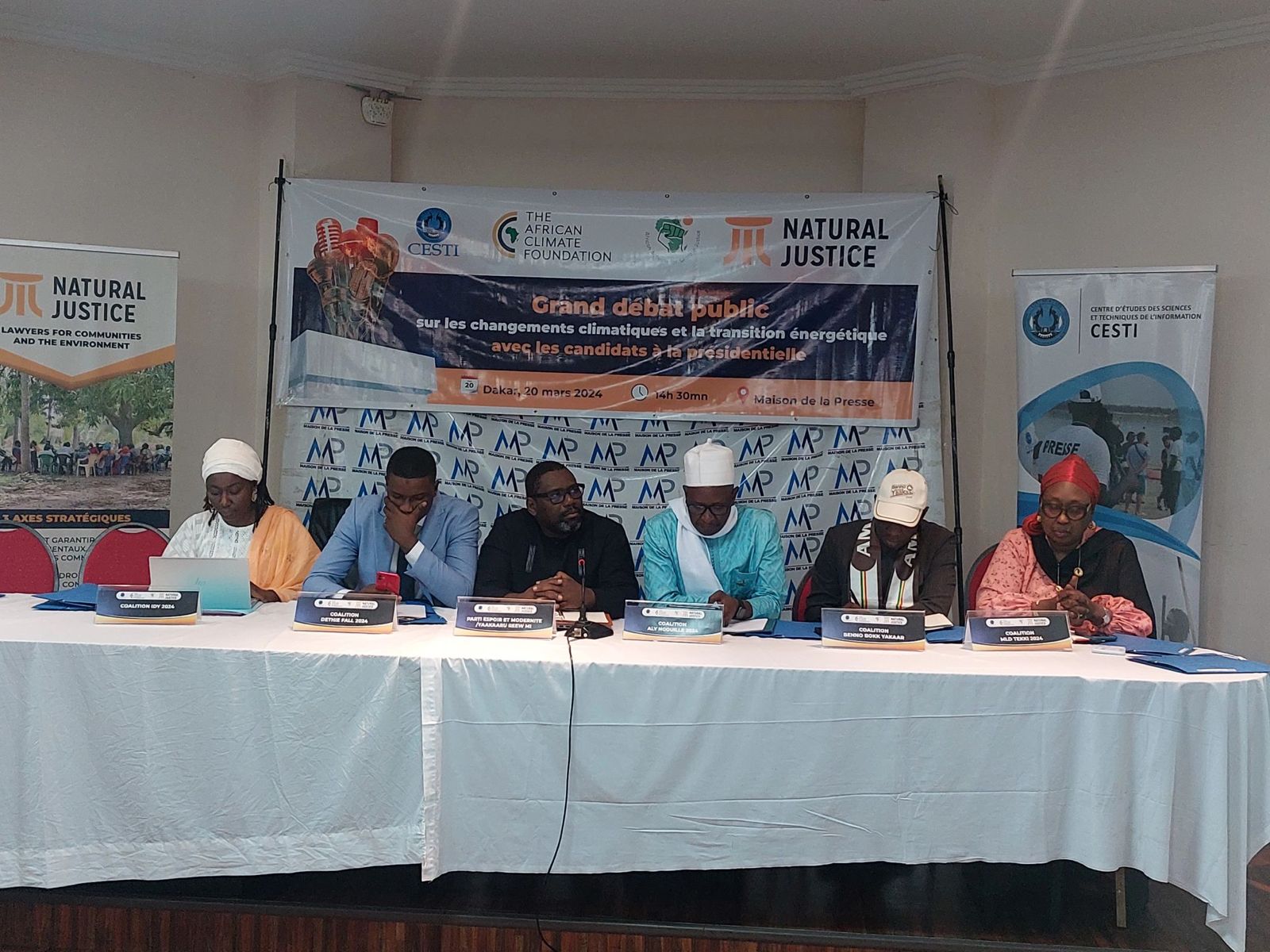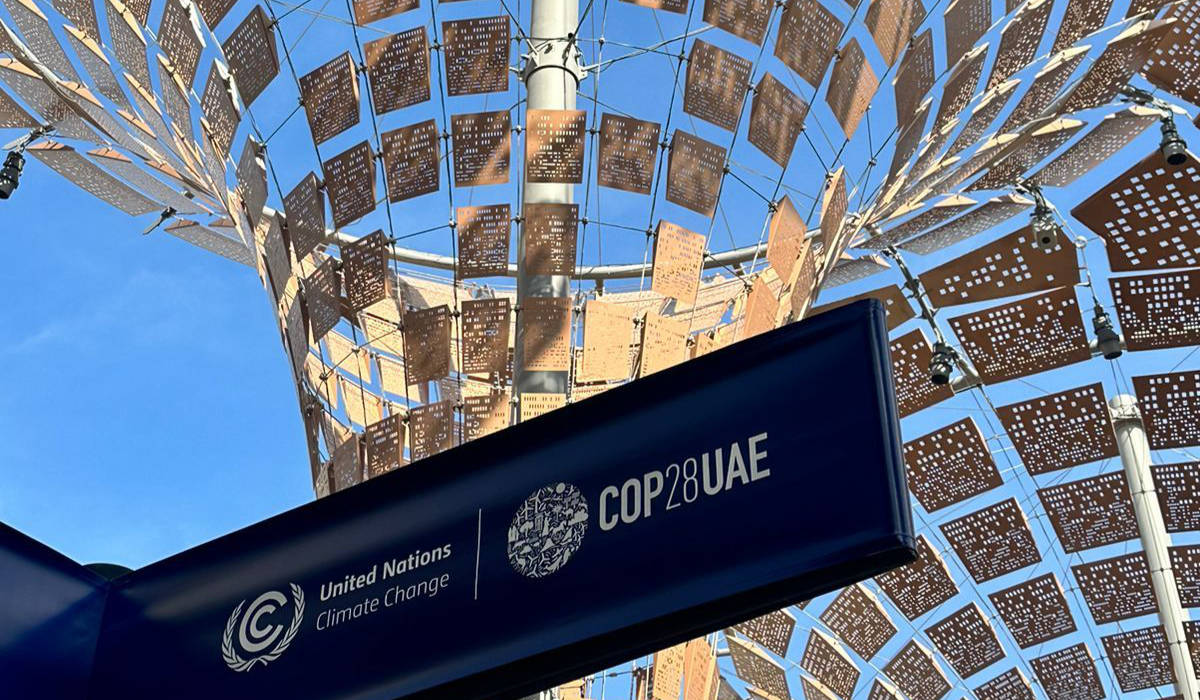The issue of loss and damage was once again topical as the week kicked off at COP27. Prominent climate delegates including a host of prime ministers and presidents spoke on whether rich countries should fund climate reparations in vulnerable countries. Several references were also made to the war in Ukraine and its impact on the climate emergency, while Africa’s green development path was mentioned.
UN secretary general António Guterres, stunned delegates with his declaration that the world was on a “highway to climate hell.”
“We are in the fight of our lives,” he said. “And we are losing. Greenhouse gas emissions keep growing. Global temperatures keep rising. And our planet is fast approaching tipping points that will make climate chaos irreversible. We are on a highway to climate hell with our foot on the accelerator.”
Calls for rich countries to finance loss and damage were abundant, as climate vulnerable countries’ leaders pleaded with historic emitters for aid.
Equitable green transition
Senegalese President Macky Sall, speaking on behalf of the African Union, said Africa was fighting to build resilience, while the continent was focused on the needed green transition. But the transition had to happen in a fair way.
“We are for a green transition that is equitable and just, instead of decisions that jeopardise our development,” he said.
Around 600 million people on the continent still lacked access to electricity, Sall said. And any green transition had to acknowledge this. He added that green development was happening in Africa, but that the development was creating further debt for Africa.
Pakistani envoy, Nabeel Munir, said for COP7 to be considered a success it must deliver “something clear and tangible” on a loss and damage funding mechanism, with a final agreement no later than COP29 in 2024. Pakistan had been particularly hard hit in the last year by the climate crisis, with vast floods leaving almost a third of the country underwater,
“Loss and damage are not charity, it’s climate justice,” she said.
Global leaders’ credibility questioned
Former US Vice President Al Gore said global leaders had credibility problems when it comes to climate change. He called for an end to the “culture of death” represented by fossil fuel extraction.
Barbados’s Prime Minister Mia Mottley, lambasted rich nations, questioning whether the basic political will to address climate change existed. She iterated the global south needed more access to technology to tackle the climate crisis and to develop.
She also questioned how oil companies could still be making record profits, without investing some of these profits into battling climate change.
“Rich nations must pay up”
French President Emmanuel Macron, threw his weight behind climate reparations, saying that wealthier countries less affected by climate breakdown should pay up. “We must come to terms with the idea of financial solidarity,” adding that this meant that rich emitters must fund poorer, vulnerable nations. Macron also vowed that the Ukraine war would not stop the French meeting their climate targets.
UK Prime Minister Rishi Sunak said in his address – described by many as lacklustre – that the war in Ukraine was not a reason to slow down climate action, in fact he believed that the war compelled nations to take action because energy security and climate security could not be parted.
Sunak also said it is “morally right” that the UK honours its climate change commitments in his speech at Cop27, but he was vague on whether the UK would pay reparations.
Media reports suggested that Britain had supported the last-minute deal on loss and damage after Pakistan had pushed hard for its inclusion.
South Africa’s JETP deal handed over
On the side-lines of the climate talks, South Africa’s R1.5 trillion just energy transition investment plan continued to make waves.
The plan was also endorsed by the International Partners Group (IPG), which includes the UK, US, Germany, France, and the EU, after being handed over by President Cyril Ramaphosa at COP27.
The countries also plan to make available an additional R10 billion. Leading climate academic and chairman of the African Climate Foundation’s advisory council, Carlos Lopes labelled the deal “the only real ‘money’ game at COP27 on Twitter. “South Africa’s Just Energy Transition Partnership (JETP) is the most sophisticated and advanced proposal of its kind. If it materialises it will give hope.”
Sunak, who also chairs the IPG, congratulated Ramaphosa for the great progress made on South Africa’s JETP. “In one year since COP, South Africa, along with the UK and our friends in the International Partners Group, has shown how serious we are about making the changes we need to halt climate change.”
Continent of special needs?
Some African delegates, however, were disappointed with the decision not to include Africa’s recognition as a Continent of Special Needs and Circumstances on the COP27 agenda this year.
The Pan African Climate Justice Alliance castigated officials at a COP27 press briefing for again ignoring Africa. The alliance said the injustice of what happened last year at Glasgow has been repeated and was a “disenchantment.”
Dr Mithika Mwenda, executive director at the Pan African Climate Justice Alliance, said they were “outraged that discussions on Africa’s special needs & circumstances have been dropped.”
“The development sets the stage for another COP that will fail millions of Africans dying unjustly from the adverse impacts of climate change and strengthen big polluters,” he said. “Africa is a region with special needs and circumstances under global law.”



